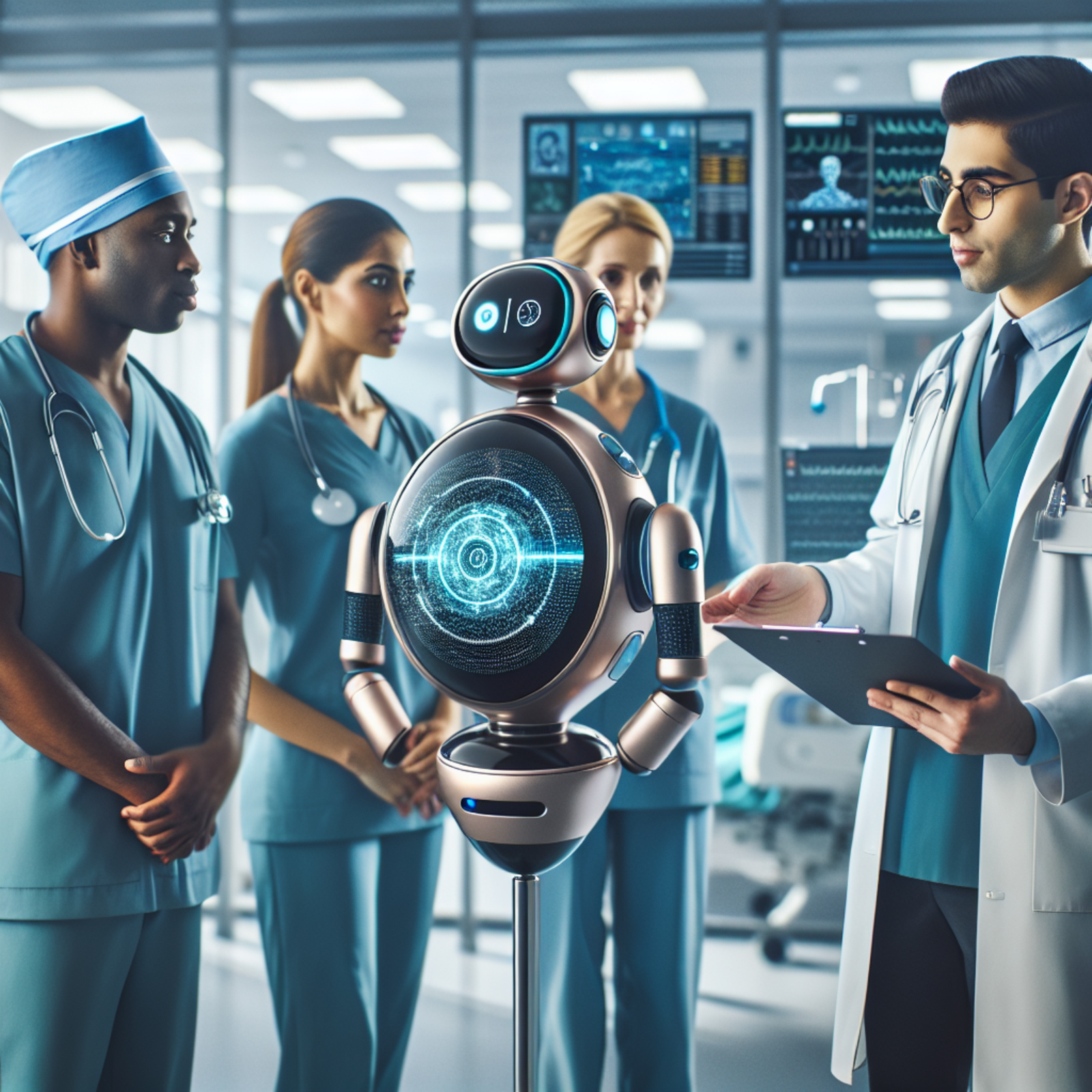Imagine walking into a hospital that feels like a scene from a sci-fi movie. Doctors and nurses move with newfound precision, guided by data and powerful algorithms. Sounds surreal? This is the reality brought about by Artificial Intelligence (AI) in healthcare.
A New Era of Diagnostics
In healthcare, timing and accuracy are everything. A slight delay or misdiagnosis can have significant consequences. Fortunately, AI promises change. With AI-driven tools, tests and imaging are not just faster but also more precise. Advanced algorithms analyze medical images to detect anomalies that might escape even the most trained human eye.

Why does this matter? Enhanced diagnostic capabilities mean conditions are identified earlier, treatments start sooner, and patients enjoy better outcomes. It's akin to swapping a guess with an educated prediction — the odds tilt in favor of the patient.
Imagine a healthcare professional using an AI assistant on a tablet, effortlessly integrating cutting-edge technology with human care. This isn’t the future; it’s happening right now.
Elevating Patient Care
A doctor equipped with AI is like a maestro conducting a symphony with precision. In patient care, this synergy ensures personalized treatment plans. Through detailed data analysis, AI systems monitor patient progress in real-time, adjusting treatments dynamically and even predicting potential complications.
Consider this: What if an AI system could alert medical staff hours before a patient's condition deteriorates? That promise is already being fulfilled in hospitals worldwide—with reduced hospital stays and prevented complications, AI empowers medical professionals to offer proactive care.
Optimizing Operational Efficiency
AI is also transforming operational efficiency. Hospitals are bustling environments, running schedules, managing inventories, and juggling demands. AI systems streamline these operations, allowing healthcare providers to focus on patients rather than paperwork.
Take scheduling as an example. AI can predict peak times for admissions and staff requirements, ensuring smoother operations. It’s like having a wise old owl perched on the hospital roof, guiding activities with quiet wisdom. The result? Less overcrowding, shorter wait times, and a better experience for everyone.
For a deeper dive into AI's impact on medicine, read AI in Medicine: Innovations and Future Trends.
Bridging Technology with Humanity
Perhaps the most exciting development is how AI complements human intuition and care. AI’s role is to enhance human capabilities, not replace them.
An exemplary product is the AI Health Assistant, offering a blend of technology and care. Imagine accessing immediate data at your fingertips, perfectly blending tech with touch.

Embracing the Future
The possibilities for AI in healthcare are immense. As this technology evolves, it’s crucial to remain mindful of its ethical implications and ensure global accessibility.
AI’s impact on healthcare extends beyond efficiency; it’s about empathy — giving professionals more time to connect with patients. It’s like weaving technology through the fabric of care, adding precision without losing humanity.
So, next time you visit a hospital and see AI in action, remember it supports the hands that heal and the hearts that care. The journey of AI in healthcare is just beginning, with its potential to transform lives being nothing short of extraordinary.
For more on health through AI, check out the Vegardians Caloriecalculator and AI Nutrition and Fitness Coach for personalized nutrition and fitness guidance.
How is AI improving diagnostic accuracy in healthcare?
AI improves diagnostic accuracy by using advanced algorithms to analyze medical images and data, allowing for earlier and more precise detection of conditions that might be missed by human eyes.
What are the benefits of AI in patient care?
AI offers personalized treatment plans, real-time monitoring, and dynamic adjustment of treatments. It can also predict potential complications, thus reducing hospital stays and enhancing patient outcomes.
How does AI enhance operational efficiency in hospitals?
AI systems streamline hospital operations by managing schedules, inventories, and demands. They predict peak times for admissions and staffing needs, reducing overcrowding and wait times, thus enhancing overall hospital efficiency.
